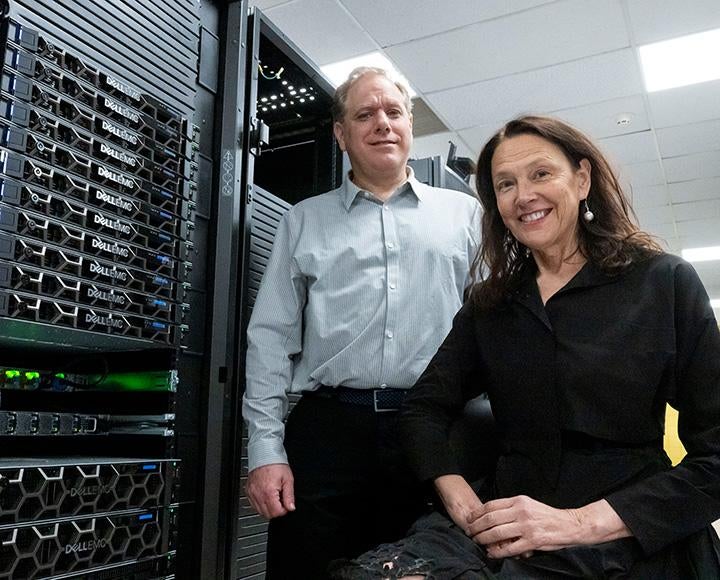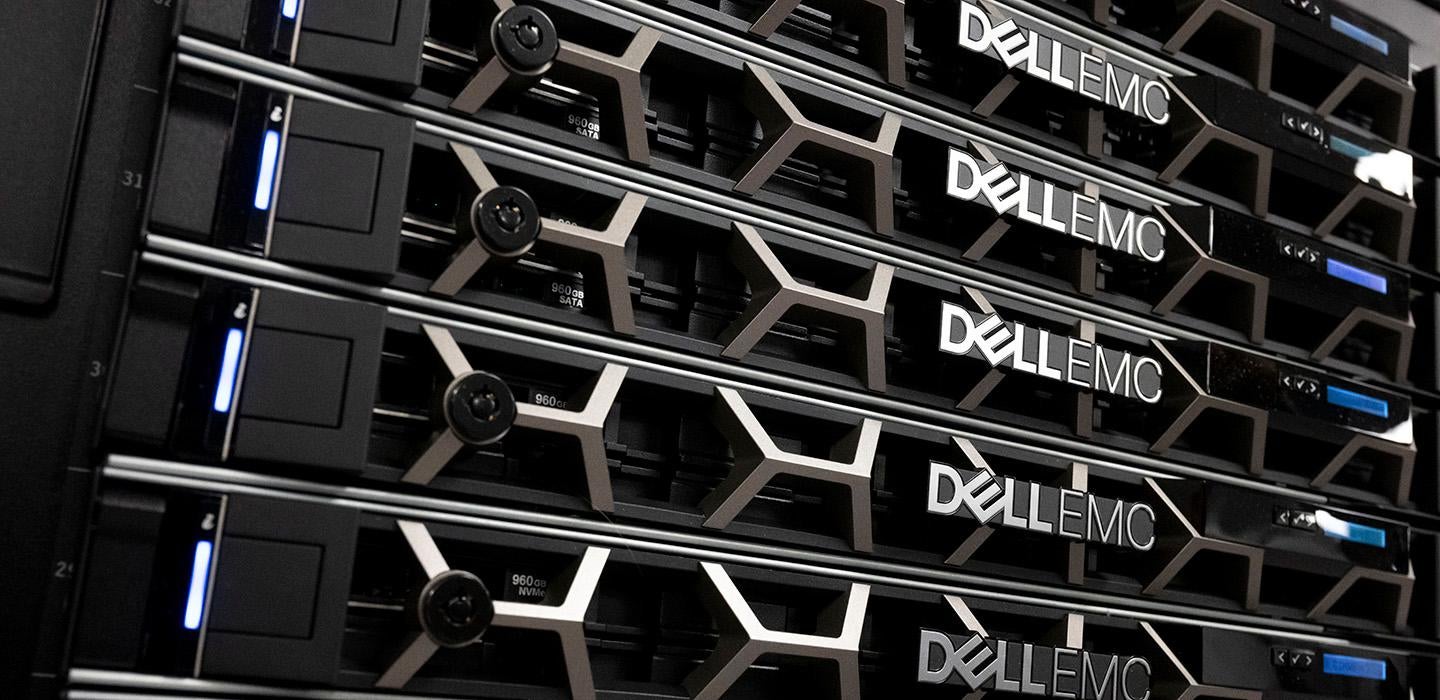
Subscribe to Pittwire Today
Get the most interesting and important stories from the University of Pittsburgh.The University of Pittsburgh has added 9,672 gigaflops of computational power — and the potential to make an additional 9.7 trillion computations per second — to its Innovation Hub for Health Science Medical Research, which will expand scientists’ capacity to create and clinicians’ ability to implement personalized diagnoses and treatment plans. A recent gift of computer hardware and support services from Dell USA will help fight a wide range of medical conditions, including cancer, Alzheimer’s and common diseases.
“Pitt ranks in the top 2% of American universities in R&D spending, most notably fifth in grants from the Department of Health and Human Services,” said Anantha Shekhar, senior vice chancellor for the health sciences and John and Gertrude Petersen Dean of the School of Medicine. “The computational power provided by the Dell system will support hundreds of researchers aiming to leverage the exponentially growing amounts of scientific and patient data to advance understanding of human health and disease.”
Use of the collaboratively designed and installed Dell high-performance computer system will start combating breast cancer and soon expand to treating other cancers, mapping every cell in the human body and slowing aging at the cellular level. Specifically, these include the Breast Cancer Research Foundation Global Data Hub and NIH Cellular Senescence Network.
“These large science collaboratives leverage advanced computer architectures, such as hybrid cloud software suites known as microservices, and secure supercomputing compliant with U.S. and European Union privacy standards,” said Jonathan C. Silverstein, a professor in the Department of Biomedical Informatics who serves as principal investigator for the breast cancer and cellular senescence projects.


Researchers create terabyte after terabyte of data through doctor’s office visits and during hospital stays. Until now, much of that data has remained in silos and is too massive for humans to fully analyze and understand. By feeding that data into the Dell system, researchers and clinicians will find patterns and new understandings will emerge.
“By using high performance computing, we can create a health care system that learns,” said Adrian Lee, director of the Institute for Precision Medicine. “With this, we can accelerate advances in care, which could directly lead to shorter, more effective treatments with better outcomes leading to improved quality of life.”
The knowledge and insights gained from each patient can be used to recommend personalized treatments, which will create more data for the ever-growing system.
“This gift initially will serve as a blueprint for using computational resources to attack all diseases that strike humankind,” said Mark Henderson, Pitt vice chancellor and chief information officer. “Finding new uses for this system is only limited by our imagination, and our work will serve as a blueprint for other researchers.”
The gift from Dell supports the company’s goal to deliver enduring impact for 1 billion people by 2030.
“One billion lives is a lofty goal, but with the incredible power of innovation and digital transformation, and with partners such as the University of Pittsburgh, I know we can do it,” said Kanon Hile, social innovation portfolio director for Dell Technologies. “We must act with a sense of urgency to apply technology in the most meaningful ways, including providing data-driven health advancement at national and international levels.”
The new system supports the Innovation Hub for Health Science Medical Research, which is a collaboration of the University of Pittsburgh, UPMC, Pittsburgh Supercomputing Center and Carnegie Mellon University.
“We are making Pittsburgh the epicenter for computationally enabled health and precision medicine,” said Joseph Yun, Pitt’s artificial intelligence and innovation architect and research professor of electrical and computer engineering in the Swanson School of Engineering. “This type of infrastructure will truly accelerate our research. We could not have this level of high-performance computing without gifts such as the one from Dell.”
— Chuck Finder, photography by Tom Altany


